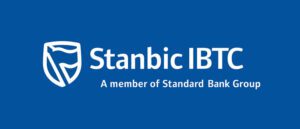
TAJBank to begin issuance of N100bn Sukuk bond, targets N30bn capital base
TAJBank Limited, Nigeria’s foremost non-interest lender, says it has concluded plans to begin the issuance of its N100 billion Sukuk bond.
This is according to a statement by TAJBank’s Managing Director, Mr Hamid Joda.
According to Joda, the commencement followed the signing of all parties for issuance of the first ever non-interest private Sukuk bond offer in the nation’s capital market.
He said that the bank had secured all regulatory approvals required for opening the Sukuk to the general public, adding that the bond would be listed on the Nigerian Exchange.
Joda described the bank’s latest investment initiative as a very important milestone in the annals of Nigeria’s capital market development, while assuring investors of good returns on their investment in the TAJBank Sukuk bond.
“The Sukuk bond issuance is a very important milestone in the history of Nigeria’s capital market.
“I believe that after this issuance, we will see a number of companies in the Nigerian market coming out to issue Sukuk bonds and that will lead to deepening of the non-interest market and eventually economic development of Nigeria.
“My message to the investing public is to take advantage of the opportunity in view of its potential for good returns,” he said.
Joda said that the instrument was coming out at an expected rate of 15 per cent.
“It is also an ethical instrument and there are very few ethical instruments out there and I believe a lot of investors are looking for instruments that have ethical leaning,” he said.
Also speaking, TAJBank’s Executive Director, Mr Sheriff Idi, emphasised the importance of the Sukuk bond to the bank’s operations.
He said that TAJBank had capacity to provide financial support to needy enterprises with the attendant positive implications for the nation’s economic growth.
“In the last two years of the bank’s operations, we have raised additional capital apart from the Sukuk we are issuing now.
“With the Sukuk bond issuance, we wanted to raise TAJBank’s capital base to about N30 billion by the end of the year.
“That means we can now finance those sectors that probably some initially thought we cannot provide funding support. That is the essence of this Sukuk bond issuance,” he said.
Idi said that when the bank commenced business about two years ago, its capital base or finance obligor element was little, adding that it limited the bank’s financial support to people and businesses.
According to him, in view of the lender’s improved capital base and other positive financial trajectory recorded over the last two years, TAJ Bank will be fully positioned to surpass public expectations.
“It will ensure improved returns to shareholders and more positive impact on the economy.
“In the last two years, we have raised additional capital apart from the Sukuk we are issuing now,” he said.
The bank’s Chairman, Alhaji Tanko Gwamna said that the Sukuk bond would benefit investors in multidimensional ways.
According to him, the impact of the Sukuk bond on the economy is that we are trying to provide more liquidity for the economy and return on the investment is very favourable.
“We are virtually competing even more than what is available in the market because its potential returns on investment is going to be very huge to investors.
“The funds raised through the Sukuk bond and innovative deployment to needy sectors of the economy will help to create jobs and boost economic activities.
“It will also improve the non-interest banking sub sector’s contributions to the nation’s Gross Domestic Product (GDP) growth in the years ahead,” he said.



